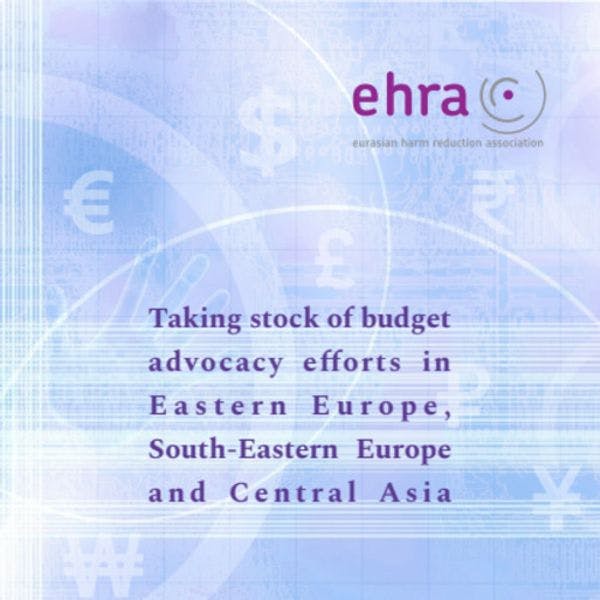Bilan des efforts de plaidoyer budgétaire en Europe de l'Est, en Europe du Sud-Est et en Asie centrale.
EHRA décrit les principales initiatives de plaidoyer concernant les budgets et le soutien des entités donatrices en matière de VIH. Pour en savoir plus, en anglais, veuillez lire les informations ci-dessous.
Ending the AIDS epidemic by 2030 in Eastern Europe and Central Asia where the HIV epidemic has grown in the last 10 years will require acceleration of HIV efforts. This acceleration, among other things, needs increased domestic investment and greater efficiencies in the use of available resources. Therefore, civil society efforts to influence budget processes and decisions, i.e. budget advocacy, is key.
This assessment maps budget advocacy efforts, support, and impact. The focus of the assessment is on the role of civil society in budget advocacy, while acknowledging that government leaders, UN and technical partners play important roles as well. The assessment describes key budget advocacy initiatives and HIV donor support for them. The report zooms in the four result areas of advocacy, looking at effort, support, impact, enablers, and lessons for each of them. Those four areas are: civil society capacity to advocate; influencing HIV funding levels from national and local public sources; increasing efficiencies in spending; and contracting and funding for NGOs to deliver services. Without offering a comprehensive review, one of the final sections of the report shines light on efforts to influence budgets beyond HIV including in the fields of TB and health systems.
Eight diverse countries were selected for analysis. They are: Bulgaria, Georgia, Kazakhstan, Kyrgyzstan, Moldova, Montenegro, North Macedonia and Ukraine. The stories of the country success and challenges were extracted into a separate collection of the country cases. As part of the assessment, in April-May 2021, key regional donors and partners were approached to share information about their support. In total 20 interviews were conducted with national and regional partners from civil society, and donors. Additionally, 37 stakeholders provided their inputs through sharing information or reviewing parts of the report.
To keep the mapping manageable and focused, the assessment does not cover support for developing national disease strategies, donors' transition plans, and efforts for decriminalization of key populations like people who use drugs (PWUDs), sex workers, gay and other men who have sex with men (MSM), transgender people, and people living with HIV (PLHIV). The assessment focused mostly on the period of 2018-2021. This assessment has not attempted to assess neither the impact of the ongoing COVID-19 pandemic on HIV budget advocacy and fiscal space for health financing nor potential savings from reducing criminalization of population behaviors.
